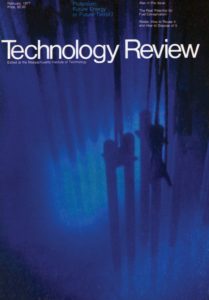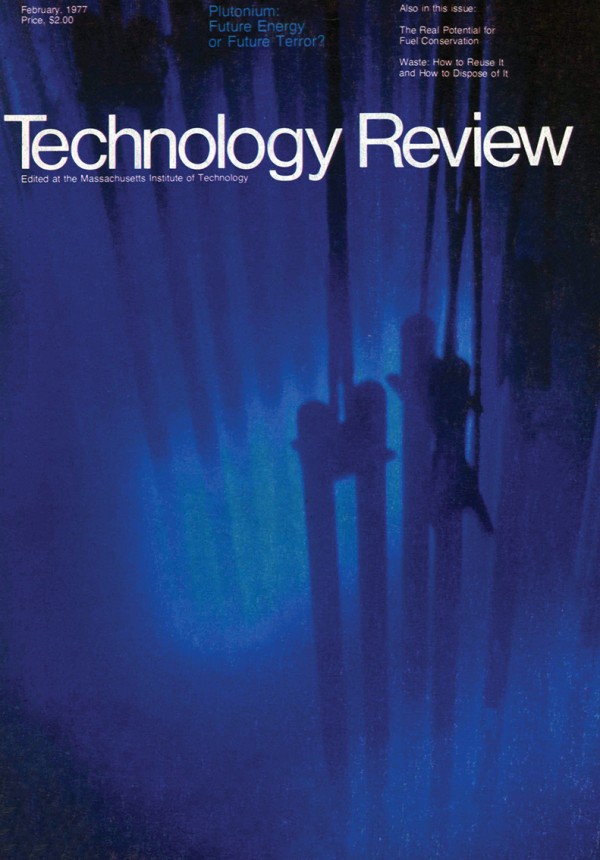
40 Years Ago: Electronic Money Is Too Easy
40 Years Ago: Electronic Money Is Too Easy
In 1977, a writer worried that people might lose control if cash went away and transactions went digital.

“The era of Electronic Funds Transfer (EFT) is undoubtedly on its way. Automated clearing houses have been set up to transfer payments from bank to bank via computer; pay-by-phone services are springing up; and electronic terminals are appearing in banks and stores to check credit and dispense cash.
Recommended for You
This story is part of our March/April 2017 Issue
See the rest of the issue
Subscribe
The possibility that electronic cash might zip through the consumer’s fingers faster than hard money worries Gordon B. Thompson of Bell Northern Research. Mr. Thompson wondered whether the combined impact of responsive cable TV and electronic money might tempt the shopper into impulsive video-shopping. ‘The hard sell one sees on television could be directly coupled to a purchasing act,’ said Mr. Thompson. ‘By just inserting a credit card in the appropriate slot and pressing a button, the latest kitchen gizmo is on its way to the viewer’s home, and his bank account will have been automatically adjusted.’
Electronic gambling could also be possible with the combined responsive cable TV/EFT systems, said Mr. Thompson. There could be ten-second lotteries, with painless payments made by simply slipping a credit card into the slot. [These systems could] bilk every compulsive gambler in the entire country.
EFT could make it possible to issue paychecks on a daily basis, and to pay bills on a daily basis … It could be possible to control payments precisely for maximum benefits, for example, paying one’s taxes precisely at 11:59 on April 15 of each year. Unfortunately, according to Robert H. Long and Wayne B. Lewin of the Bank Administration Institute, the government would probably already have gone to daily payment of taxes by then.
Other effects are not so obvious, said the two researchers. Because computers are more impersonal than human-centered systems, there might be an increase in ‘beat the system’ types of crimes. The challenge of the game of ripping off the computer may be just too much. ‘The person who today tries to beat the house in Las Vegas … might find the challenge of beating the electronic value transfer system too good to pass up. After all, who is hurt?’ they asked.
Finally, and perhaps most ominously, the concentration of data in EFT systems will tempt greater government control of the economy, for huge amounts of economic data will be readily available, tempting policymakers to act upon it. And the power of EFT records may also tempt government to gather information on the habits and finances of the public, perhaps endangering privacy.”
Excerpted from “Doubts About Electronic Money,” from the February 1977 issue of Technology Review.


Leave a Reply